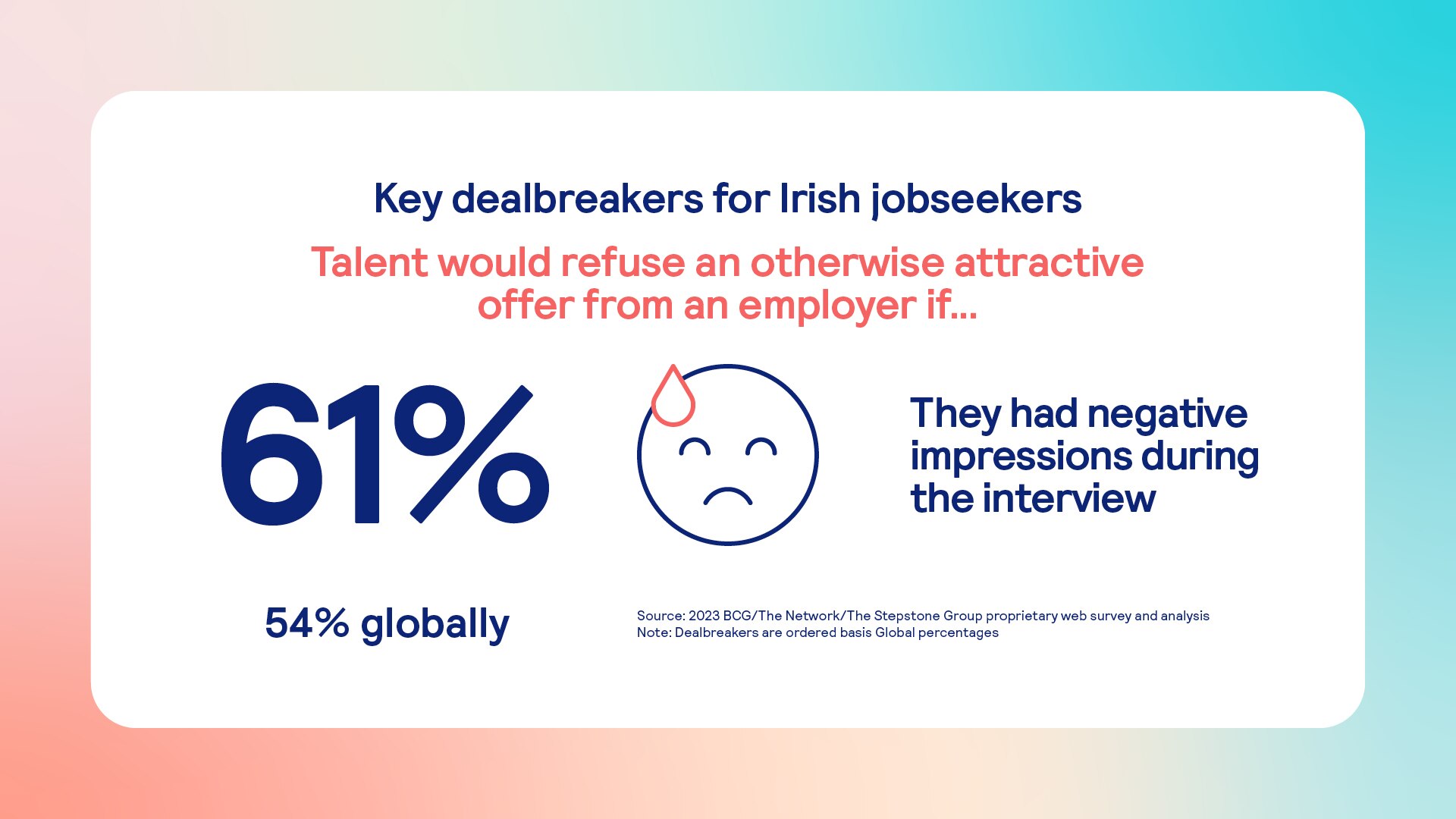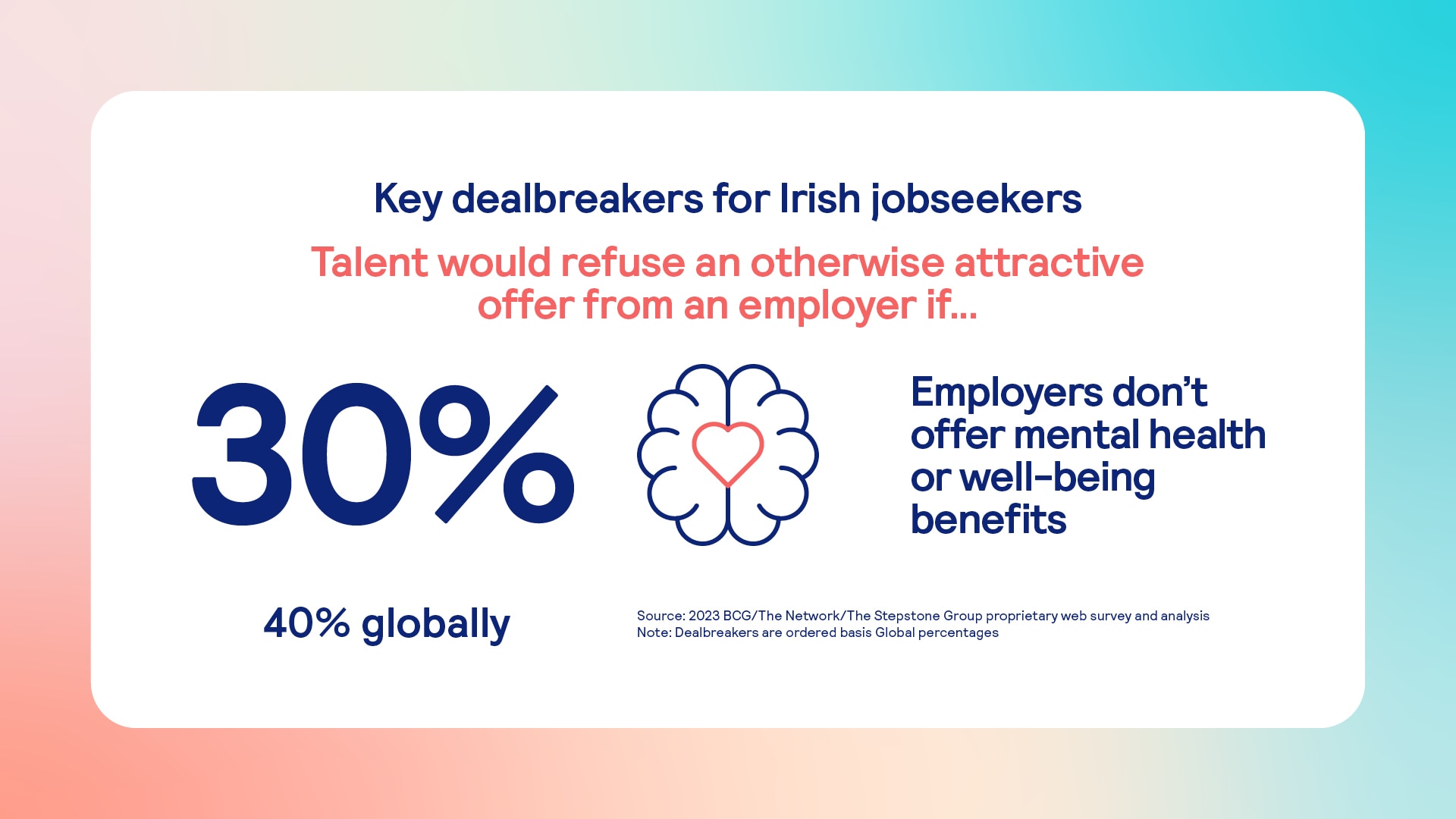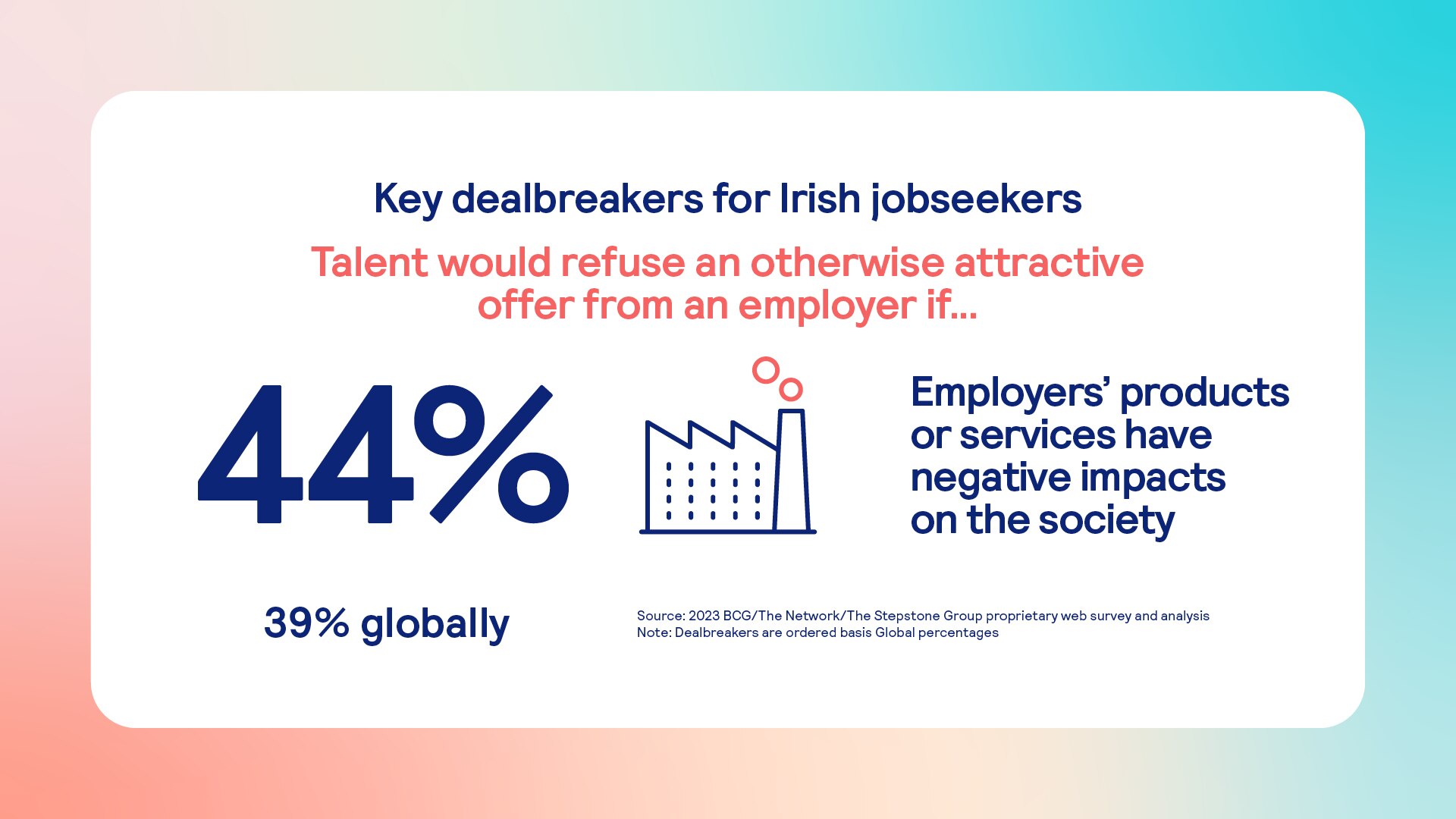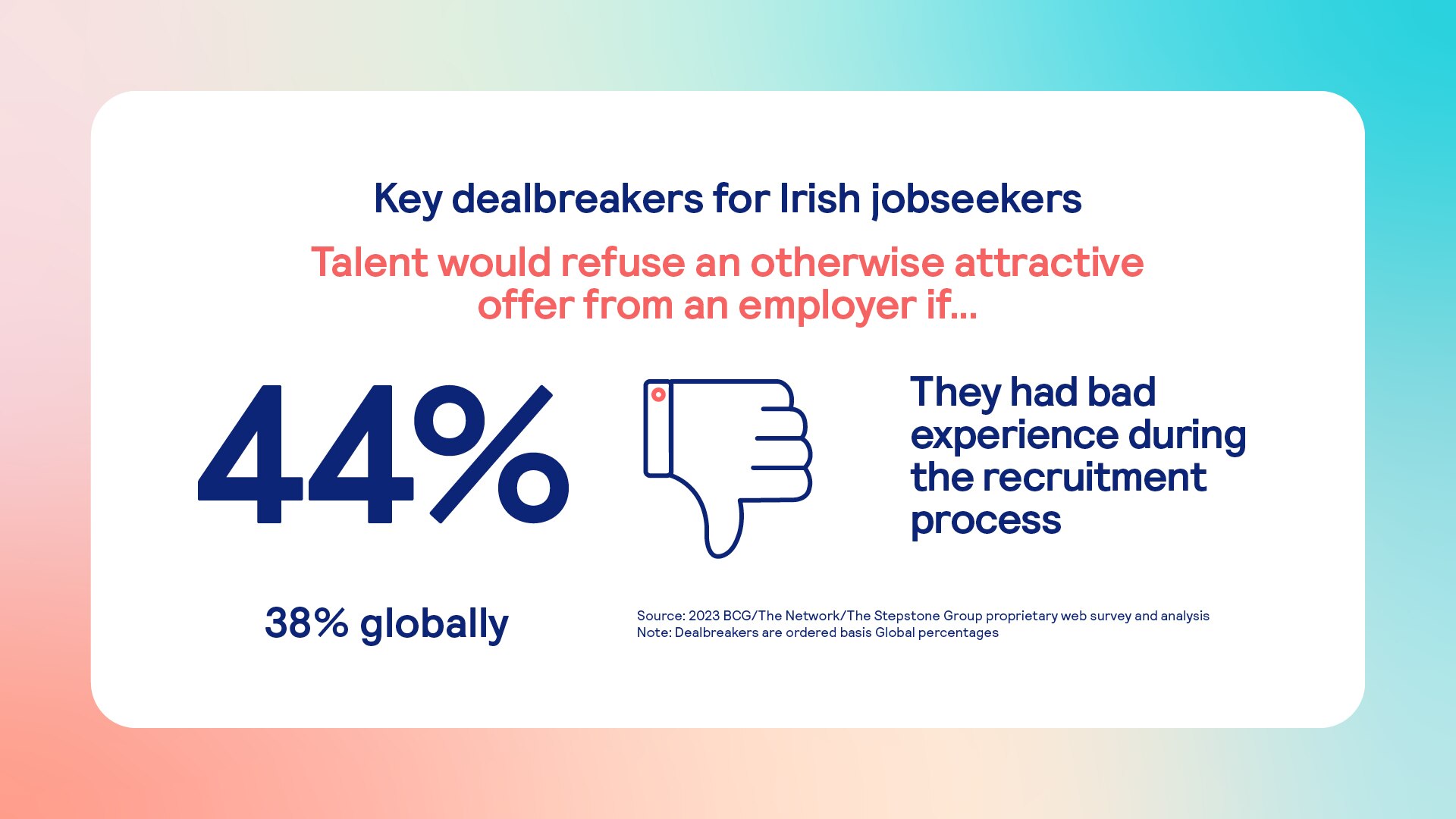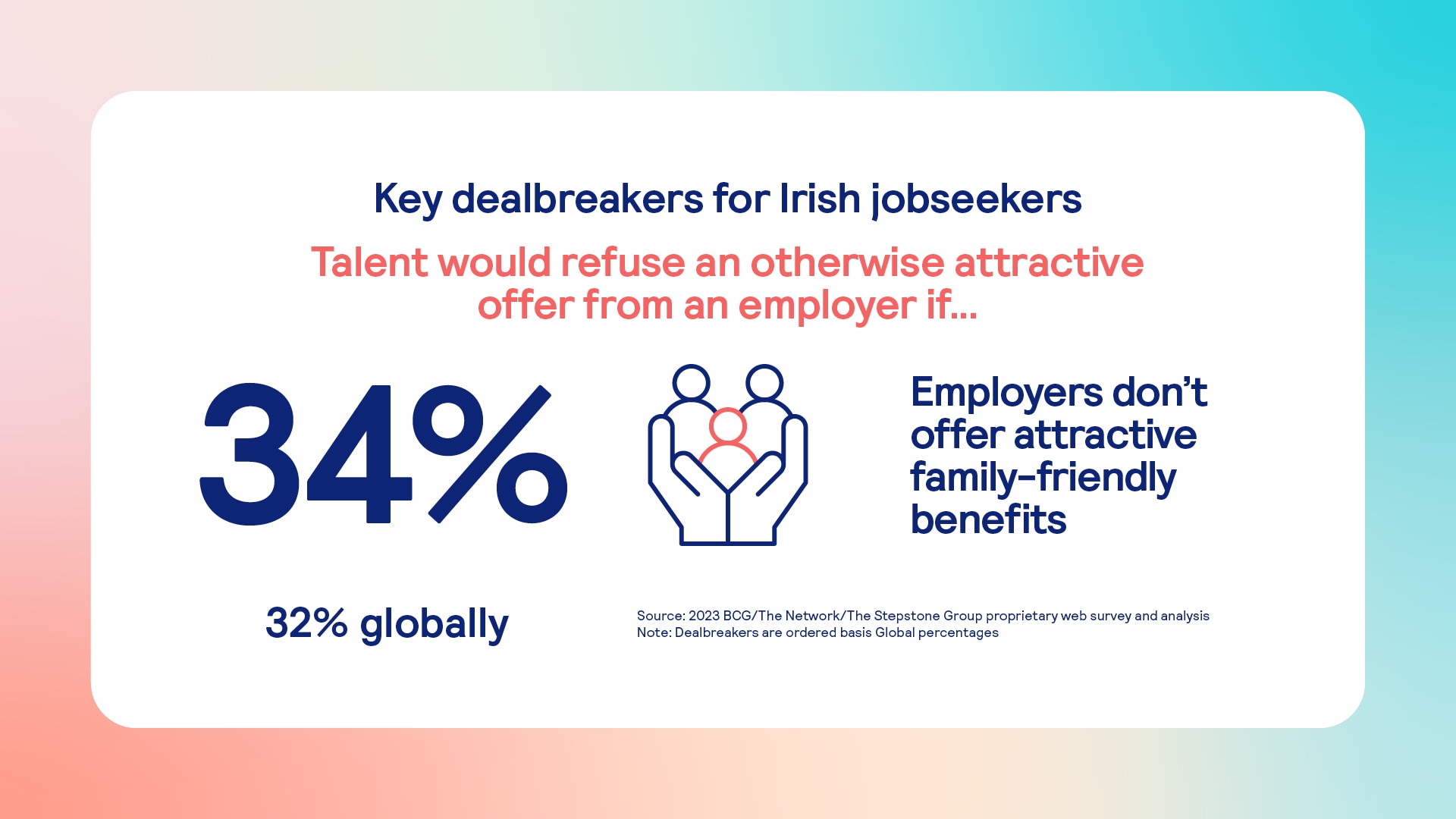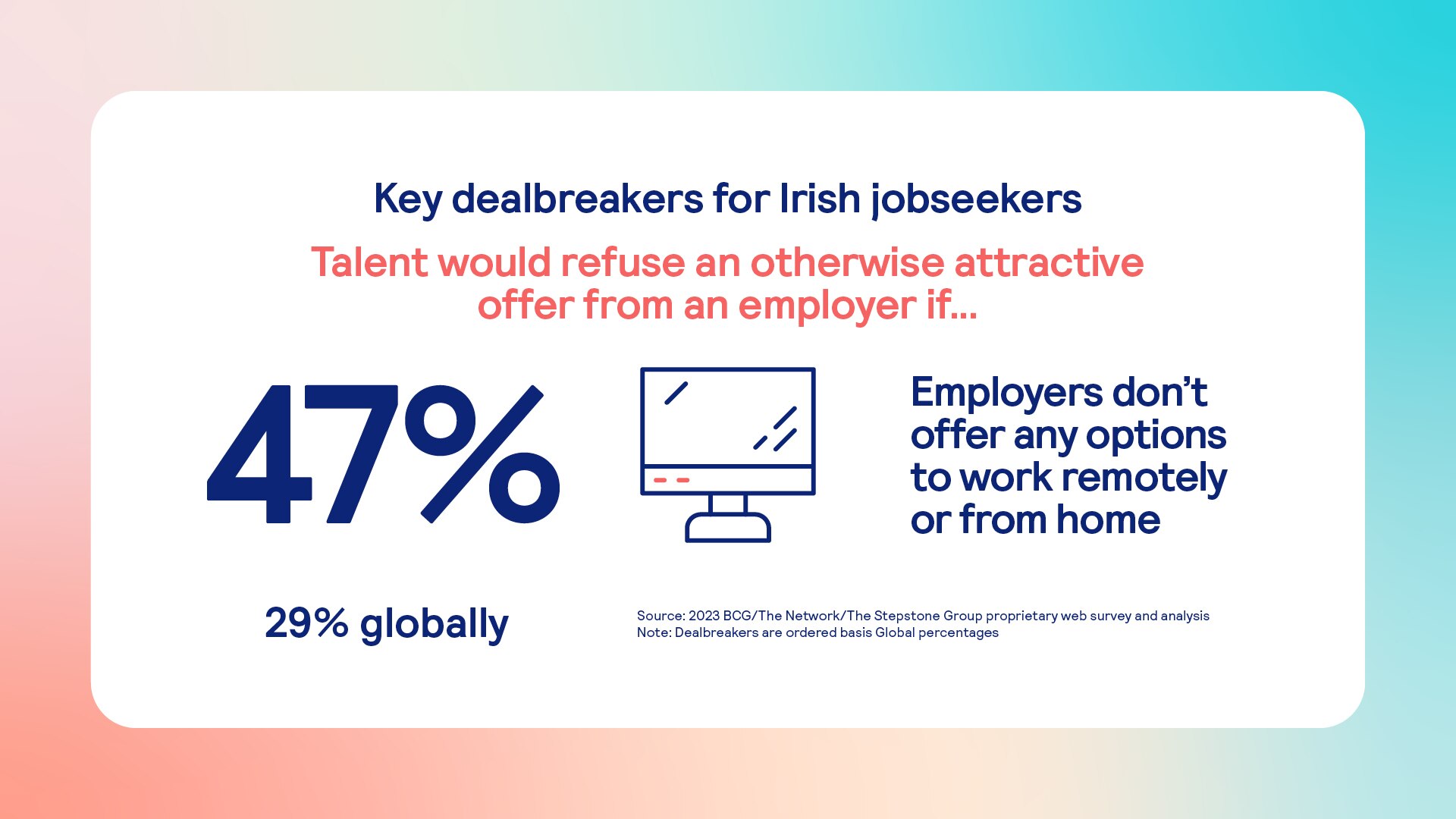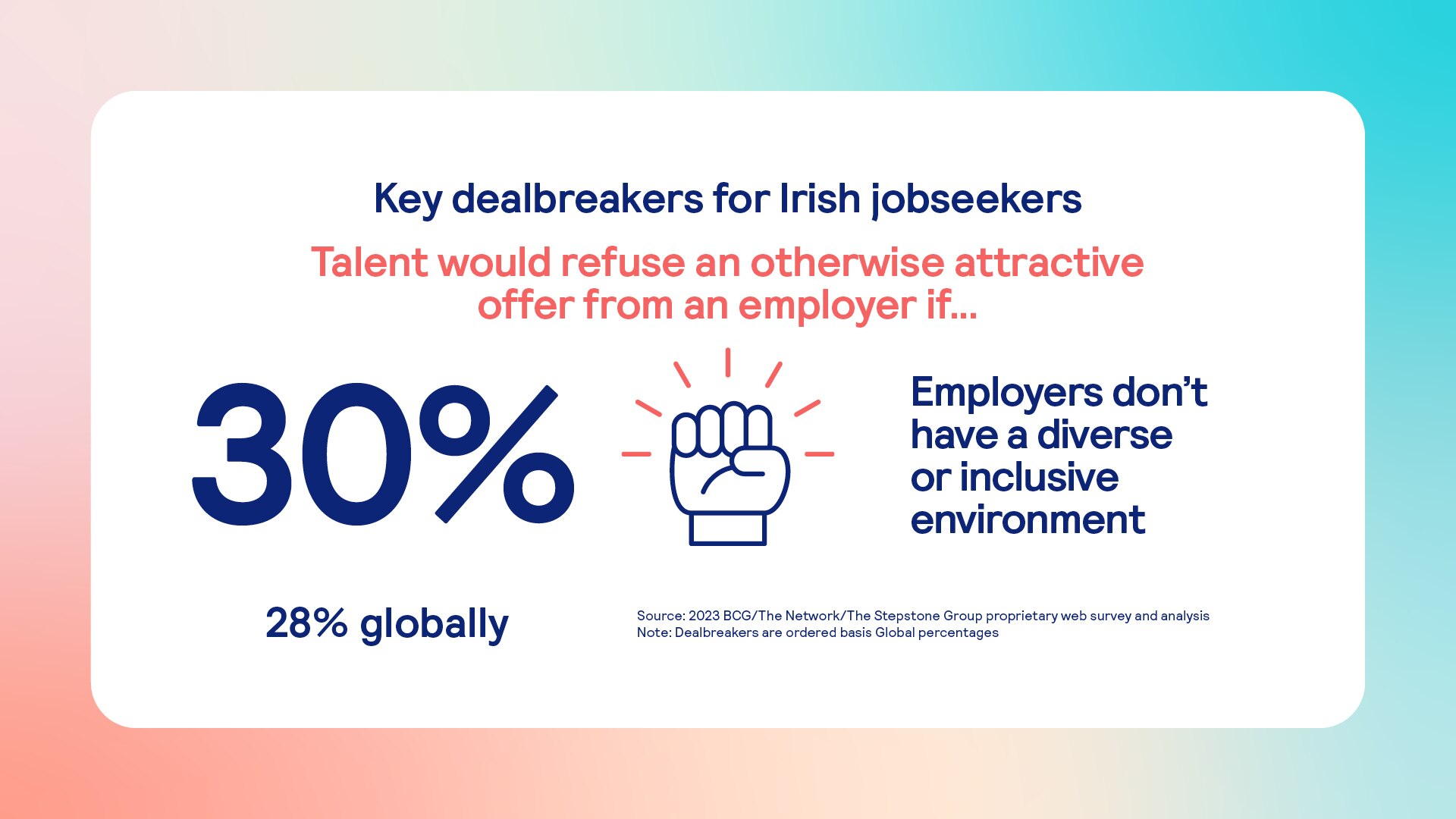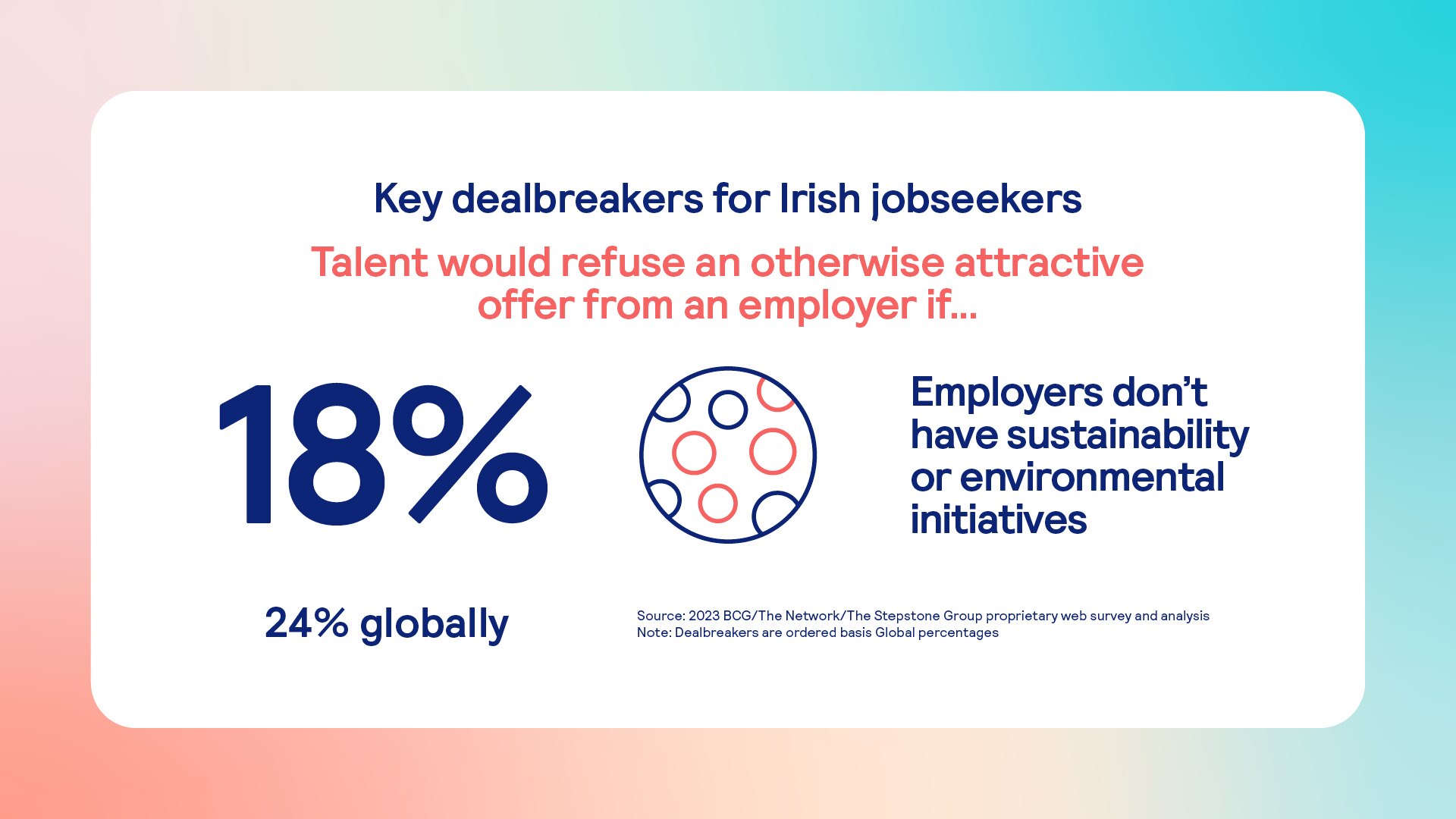Understanding the top job elements that jobseekers value is crucial for both employers and recruiters, as it provides actionable insights into what drives talent attraction and retention. This information is valuable for several reasons such as aligning job offers with candidates’ expectations, helping build strategic employer branding and retention strategies giving recruiters a competitive advantage, and providing insights on policy and benefits adjustments.
To continue attracting, retaining, and developing top talent, and thereby gain a clear competitive edge, Irish employers must understand what matters most to workers and jobseekers. Evolving Work Preferences for Irish Jobseekers, as part of the Decoding Global Talent 2024 report, provides invaluable insights into these preferences, reflecting the changing landscape of employment and jobseeker priorities in Ireland.
The Decoding Global Talent report, published in partnership with Boston Consulting Group (BCG) and The Network, a global alliance of more than 70 leading recruitment platforms is based on survey data from more than 150,000 workforce respondents from 188 countries, including 1,746 respondents in Ireland.
The survey elicited respondents’ preferences at work and covered topics such as evolving work preferences, attitudes, and factors that might lead respondents to reject an attractive job offer.
The analysis in this report, derived from the data of 1,746 respondents in Ireland, offers a comprehensive understanding of evolving work preferences, attitudes toward employment, and factors that could influence a respondent’s decision to turn down an otherwise appealing job offer.
To find out what workers care about, this survey answered key questions including:
* What are the deal breakers that would make an otherwise desirable job unacceptable?
* How do jobseekers perceive their position and negotiating power in the labour market?
* What do workers expect from an employer? What do they value most in a job?
Confidence within the Irish workforce
When examining the confidence within the Irish workforce, the frequency at which Irish respondents are approached with job offers indicated a significant portion receive such offers a few times a year or more frequently. This suggests a dynamic job market in Ireland, where many professionals have multiple opportunities to negotiate their employment terms. This trend reflects a high demand for skilled workers, leading to frequent recruitment efforts by employers. Consequently, it allows respondents to leverage these offers for better positions or improved conditions in their current roles.
Against this backdrop, most Irish respondents feel they have the upper hand when it comes to obtaining the jobs they want. 48% believe that they have a strong negotiating position and can choose among job offers and negotiate attractive compensation packages.
Their confidence is not unfounded. Whether they are active or passive jobseekers, workers say they are approached with job offers often; 83% of respondents in Ireland say that they are contacted regarding a job opportunity at least a few times a year, and 29% are contacted weekly.
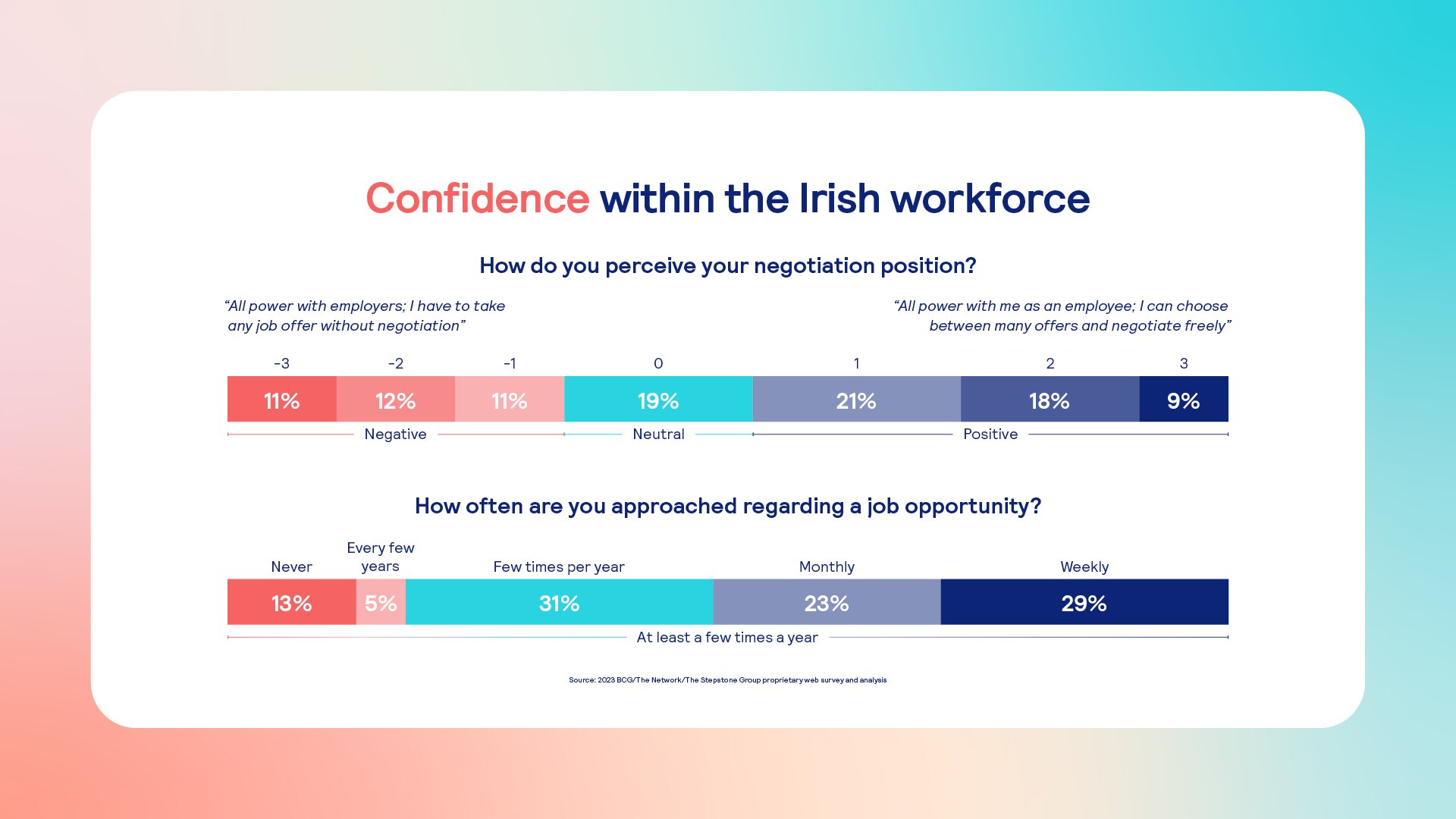
Top work preferences for Irish employees
Findings highlight that a good work-life balance was the top preference among Irish employees, unchanged since the last report was published in 2021.
Financial compensation, job security, and the amount of paid time off/holidays are the next most important work preferences in Ireland. Financial compensation has increased by six places since the last survey, indicative of the impact of the increased cost of living on the Irish workforce over the past number of years.
Preferences relating to workplace relationships reassert the impact the current economic climate is having on Irish workers. Having a good relationship with colleagues and superiors has fallen from being the second and third top preference, a status maintained since 2018, to dropping three or four places respectively. Although maintaining positive relationships at work remains important, more urgent concerns have taken precedence, reflecting the current economic climate.
Understanding how to manage a multi-generational workforce effectively has become a key consideration for many organisations. Employers need to understand the motivations of various age groups within the workforce in order to engage, retain, and maximise the potential of their diverse talent pool.
Each generation possesses distinct values and drivers. While a good work-life balance is the most important job element for professionals aged 21 and above, interesting job content is the top component for workers under the age of 21.
Financial compensation is the second most important work preference for professionals aged 12-50. Good relationships with colleagues overtake monetary considerations as the second most important job preference among workers aged 51 and above.
Key dealbreakers for Irish jobseekers
Nearly half of Irish jobseekers (47%) would refuse a job offer if there were no hybrid or fully remote working options offered, compared to a global average of 29%. This reflects the importance of a good work-life balance in a tight labour market.
Findings also highlight the growing importance of corporate, environmental, social, and governance policy for Irish jobseekers. Almost one in five (18%) of jobseekers would refuse a job offer from an employer that didn’t have environmental or sustainability initiatives in place. 30% of jobseekers would not accept a job offer from an employer that didn’t offer mental health or well-being benefits.
Also, a significant portion of respondents indicated they would be deterred if employers do not offer family-friendly benefits (34%) if they had a bad experience during the recruitment process (44%), or if the employer’s products or services have negative impacts on society (44%).
The findings from Evolving Work Preferences as part of the Decoding Global Talent report provide a comprehensive analysis of the evolving job market and worker preferences in Ireland.
These insights underscore the necessity for employers to adapt their recruitment and retention strategies to align with evolving worker expectations. By understanding and addressing these preferences, employers can enhance their employer branding, retain top talent, and maintain a competitive edge in the marketplace. This strategic approach is vital for encouraging engaging and supportive work environments, ultimately leading to higher job satisfaction and productivity.

